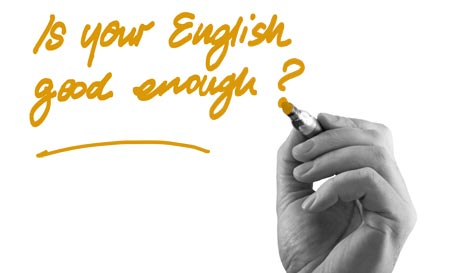Η αργκό είναι μια γλώσσα από μόνη της… ένας κώδικας επικοινωνίας, γεμάτος ιδιώματα. Εξελίσσεται και αλλάζει από πόλη σε πόλη αλλά και με την πάροδο του χρόνου.
Ενώ η αμερικανική αργκό είναι πιο διαδεδομένη με τις τηλεοπτικές εκπομπές, τις ταινίες και τα τραγούδια που προβάλλονται παγκοσμίως η Βρετανική κρύβει πολλά ‘διαμάντια’. Έτσι, εάν είστε αγγλόφιλος ή αν απλά θέλετε να δείτε τι είδους λέξεις οι Βρετανοί χρησιμοποιούν καθημερινά δεν έχετε παρά να ανατρέξετε στην παρακάτω λίστα…
- Ace: If something is ace it is awesome. I used to hear it a lot in Liverpool. Kids thought all cool stuff was ace, or brill.

- All right?: This is used a lot around London and the south to mean, "Hello, how are you"? You would say it to a complete stranger or someone you knew. The normal response would be for them to say "All right"? back to you. It is said as a question. Sometimes it might get expanded to "all right mate"? Mostly used by blue collar workers but also common among younger people.
- Any road: used in place of “any way,” primarily used in the north of Britain.
- Baccy: Tobacco. The sort you use to roll your own.
- Belt up: For some reason I heard this quite a lot as a kid. It's the British for shut up.
- Bits ‘n bobs: various things. Example: “My mother has a lot of Bits ‘n Bobs around the house.”
- Bloody: One of the most useful swear words in English. Mostly used as an exclamation of surprise i.e. "bloody hell" or "bloody nora". Something may be "bloody marvellous" or "bloody awful". It is also used to emphasise almost anything, "you're bloody mad", "not bloody likely" and can also be used in the middle of other words to emphasise them. E.g. "Abso-bloody-lutely"!
- Bob’s your uncle: This is a well used phrase. It is added to the end of sentences a bit like and that's it! “There you go! You’ve got it!”
- Brass monkeys: a more obscure British term, ‘brass monkeys’ is used to refer to extremely cold weather. For example, ‘You need to wear a coat today, it’s brass monkeys outside.’
- Bugger off: “Go away!” or “Leave me alone!”
- Cheers: doesn’t quite have the same meaning that it does in other counties – of course, it still means ‘celebrations’ when toasting a drink with some friends, but in British slang, it also means ‘thanks’ or ‘thank you’. For example, ‘Cheers for getting me that drink, Steve’.
- Chinese whispers: This is a good one. It refers to the way a story gets changed as is passes from one person to the next so that the end result may be completely different from what was originally said. Sound familiar?
- Damp squib: More of an usual term, a ‘damp squib’ in British slang terms refers to something which fails on all accounts, coming from the ‘squib’ (an explosive), and the propensity for them to fail when wet. For example, ‘The party was a bit of a damp squib because only Richard turned up.’
- Donkey's years: Someone said to me the other day that they hadn't seen me for donkey's years. It means they hadn't seen me for ages.
- Duck: In and around Leeds you will find older people might call you "duck" in the same way that they might call you "love" or "dear" in other places. Usually pronounced more like "dook", which rhymes with "book".
- Fancy: If you fancy something then it means you desire it. There are two basic forms in common use - food and people. If you fancy a cake for example it means you like the look of it and you want to eat it. If you see someone of (hopefully) the opposite sex then you might fancy them if you liked the look of them and wanted to get to know them a little better!!!
- Fortnight: Two weeks. Comes from an abbreviation of "fourteen nights". For example, ‘I’m off for a fortnight to Italy for my summer holiday.’
- Full of beans: This means to have loads of energy. It is a polite way of saying that a child is a maniac. I was often described as being full of beans as a kid and now it is my wife's way of telling me to keep still when she is trying to get to sleep. Strangely the same expression in some parts of the US means that you are exaggerating or talking bollocks!
- Gobsmacked: a truly British expression meaning to be shocked and surprised beyond belief. The expression is believed by some to come literally from ‘gob’ (a British expression for mouth), and the look of shock that comes from someone hitting it. For example. ‘I was gobsmacked when she told me she was pregnant with triplets.’
- Her Majesty's pleasure: When visiting England, try to avoid being detained at Her Majesty's pleasure. This means being put in prison with no release date!
- Hunky-Dory: ‘Hunky-dory’ – a neat little piece of British slang that means that a situation is okay, cool, or normal. For example, ‘Yeah, everything’s hunky-dory at the office.’

- Knackered: a great word and phrase used by Britons to describe their tiredness and exhaustion, in any given situation. Often substituted in friendly circles for ‘exhausted’. For example, ‘I am absolutely knackered after working all day.’
- Knees up: If you're having a knees up, you're going to a dance or party.
- Know one’s onions: To be well versed on a subject. “Go ask John. He know his onions about cars.”
- Mate: one of the commonly used terms of endearment and affection in British slang terms. Used when you are talking to a close friend, and is often easily substituted for the American ‘buddy’, ‘pal’, or ‘dude’.
- Not my cup of tea: This is a common saying that means something is not to your liking. For example if someone asked you if you would like to go to an all night rave, they would know exactly what you meant if you told them it was not exactly your cup of tea!
- Spend a penny: to use the restroom/to go to the bathroom. It is a very old fashioned expression that still exists today. It comes from the fact that in ladies loos you used to operate the door by inserting an old penny.
- The Fuzz: The Police. “Don’t let the fuzz catch you.”
- Take the mickey: To tease or mock. “Don’t get so upset when someone takes the mickey.”
- Tosh: A nifty little British term that means ‘rubbish’ or ‘crap’. For example, ‘That’s a load of tosh about what happened last night’, or ‘Don’t talk tosh.’
